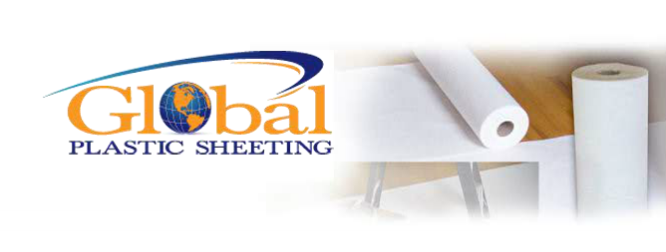Question: I am looking for a plastic sheeting product that will adhere to concrete. I need to protect holes in precast concrete structures from filling with water. Will your Glass Plastic product stick to a very smooth concrete finish?
Answer: If you were to try to use Glass Plastic on concrete, regardless of how smooth the finish, you would swear it had no adhesive. Yet if you took the same roll and tried it on glass, it would stick beautifully. Part of what we take advantage of with glass protection is the ionic nature of glass.
For your project, a much more aggressive adhesive would be needed. This depends on how smooth the concrete being covered is, and whether or not it has been sealed. We have had quite a few customers use one of our products to cover concrete while they are re-surfacing asphalt parking lots. This is honestly about the only experience we have with covering concrete, because we normally recommend against it. The product that has been used is a 6 mil film with an adhesive system called 479. It is fairly aggressive as surface protection films go, but this is normally needed to adhere to concrete, and even then the concrete needs to be pretty smooth or it will not adhere well enough to support its own weight.
It is important to know how long the film would be in place. Surface protection films must be applied to cured surfaces in temperatures fairly close to room temperature for the adhesive systems to “wet out” properly. In colder climates, quite a few of our customers warm the rolls, and say they work pretty well on colder surfaces.
Microscopically speaking, concrete has a very open porous system, and it often holds quite a bit of moisture. Moisture is the enemy of adhesive systems of the types used on surface protection films. A water-based adhesive system is slippery until the water is removed, then it becomes sticky. If water is present it can re-hydrate the adhesive system to some degree, and cause not only the loss of adhesion, but can also cause adhesive residue transfer. If the surface protection film is left on concrete for an extended period of time, adhesive residue transfer becomes more and more likely. Really the only applications where we have had reports of it being used successfully are for days, not weeks or months.
If the concrete is sealed, then the film adheres much easier, and the chances of problems are reduced significantly. Once the film is well adhered to sealed concrete, it will usually stay adhered, even during inclement weather.
If you want to experiment we can send some samples for you to test. Yours is a difficult application for anything self-adhesive unfortunately.





